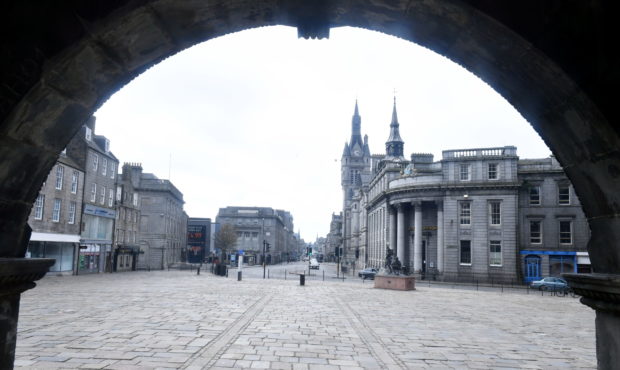The whole of mainland Scotland officially moved into Level 4, bringing tougher restrictions designed to tackle the spread of Covid-19.
Many of the measures in place in Level 3, such as travel restrictions in or out of local authority areas and a ban on visiting other people’s homes, remain the same.
However, some additional restrictions are in place from today to limit social interactions and slow the spread of the disease.
Businesses in hospitality, such as restaurants, cafes, bars and pubs, are not allowed to open at all. Takeaways can still operate, but food and drink can only be sold if they are not going to be consumed on the premises.
All holiday accommodation is closed for tourism. Hotels, bed and breakfasts and self-catering accommodation can remain open, but only for customers classed as essential.
This includes people who are using it for work purposes, those who are homeless or are unable to return to their main accommodation and those who require it to attend a wedding or funeral.
Only essential retail is allowed, and only where businesses have followed government guidance on keeping staff and customers safe. Outdoor retail and services such as click and collect or online are still allowed.
Close contact retail services such as hairdressers and nail salons must close.
In Level 4, tradespeople are only allowed to enter homes for essential reasons, such as urgent repairs or safety checks.
Outdoor non-contact sport such as golf or fishing is allowed, but indoor facilities such as gyms are not permitted to open.
Leisure and entertainment venues must close, but film and TV production is still allowed as long as industry guidance is adhered to.
Driving lessons are not permitted unless all occupants of the car are from the same household, and instructors must not leave their local authority to provide lessons.
Public buildings such as art galleries and libraries are closed, although click and collect services can continue. Community centres can continue to operate for the delivery of essential services only, such as emergency shelter, medical services or meals for the homeless.
Places of worship, such as churches, are limited to a maximum of 20 people whether indoors or outdoors, and physical distancing must be in place between households. Weddings, civil partnerships and funerals are also limited to 20 people.
Schools and childcare settings are only open to vulnerable children and the children of essential workers. All other pupils will be taught remotely. Colleges and universities can operate with a restricted mix of face-to-face and remote learning.
Hospitals and care homes will accommodate essential visits only indoors. Garden or window visits at care homes are permitted, but are restricted to one person and must be arranged in advance.
Travelling to visit residents in care homes is classed as essential.
In announcing the new restrictions, First Minister Nicola Sturgeon said: “It is true that this action is not solely in response to the severity of our current situation.
“It is very firmly, action designed to prevent things getting worse – potentially very quickly – as a result of this new strain.
“I know that accepting greater restrictions on this basis – not as a result of what is happening now, but to stop the situation deteriorating – is hard for people to accept. I really understand that.
“But the most important thing we have learned through this pandemic is that failing to act quickly, decisively and preventatively in the face of this virus is always a mistake.”
